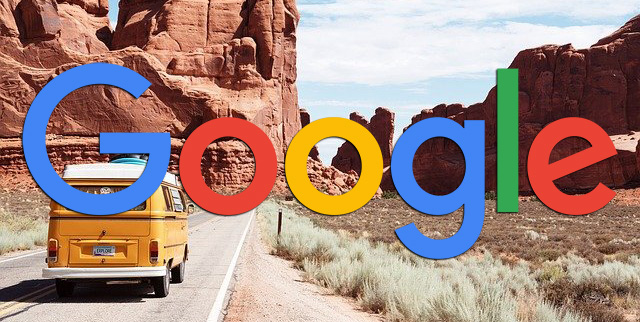SEARCHENGINES
Google Search Popular Destinations Box Leads To Google Travel Results

Google had added a “popular destinations” search related carousel to the search results for some queries. Valentin Pletzer spotted this the other day and I can see it as well on both mobile and desktop search.
You can replicate it yourself for queries like [japanese tourism] or [chinese tourism] and so on.
Here are some screenshots:

When you click on any of those results in the carousel, you are taken directly into the Google Travel vertical of search results. Google Travel had popular destinations for many years.
Forum discussion at Twitter.
Source: www.seroundtable.com
SEARCHENGINES
Daily Search Forum Recap: April 19, 2024
Here is a recap of what happened in the search forums today, through the eyes of the Search Engine Roundtable and other search forums on the web.
Google is testing more ad formats for its search ads. BingBot is testing new compression methods. Google said it is unlikely your rankings would drop just because you have two or more sites. Google says the indexing API might work for unsupported formats. Google said hyphenated domains are not bad by themselves. And I posted the weekly SEO video recap.
Search Engine Roundtable Stories:
-
Search News Buzz Video Recap: Google Core Update Flux, AdSense Ad Intent, California Link Tax & More
The Google March 2024 core update is still rolling out, almost 6 weeks now, and we saw two shifts of ranking volatility, both mid-week and the weekend before. Google’s Danny Sullivan went on the defensive on search quality and forum listings… -
Google Tests More Google Ad Card Formats
Google is testing another ad format, another card like format, for its search ads. We previously saw the vertical and tall ad cards, then the carousel horizontal card format and now here are just plain horizontal ad cards. -
Google: It’s Unlikely Your Rankings Dropped Because You Have Two Websites
Google was asked if having two websites and Google finding out about them would cause the websites to drop in rankings. John Mueller from Google said that is “not likely,” adding that many people have several websites and that is fine. -
Google: Indexing API May Work For Unsupported Content But…
Gary Illyes from Google said in the recent Google SEO office hours the Google Indexing API may work for unsupported content formats, but that you shouldn’t be “surprised if suddenly it stopped working for unsupported verticals overnight.” -
Google: Are Hyphenated Domains Are Bad For Google Ranking?
The topic of using hyphens in domain names is one of the oldest SEO topics we have in this space. Heck, in 2004, SEOs said there was a specific Google ranking algorithm that filtered out domains with hyphens in them (Google did not by the way). -
Bingbot To Test Zstd Compression After Fully Gaining Full Brotli Compression
Fabrice Canel from Microsoft announced that BingBot now fully supports Brotli compression and will soon be testing zstd Zstandard compression, a lossless data compression, for its crawler. -
Google Cloud Socks
Google loves to print socks for its various swag and here are two variations of socks from the Google Cloud team. I like the white socks because they look more retro but here are nicer versions as well.
Other Great Search Threads:
- From a practical POV, you can specify your prices using structured data on the page, with a merchant center feed (which many ecommerce systems can make for you) or manually in merchant center., John Mueller on X
- I passed this on. I don’t think there’s anything special going on here, but the feedback on this being confusing is good to pass on., John Mueller on X
- If you have older reports that are still helpful, you’ll just need to click the View “button” and access ones you want to remain active., AdsLiaison on X
- The way I see this is more that there are things which can be recognized & ignored, but a site might still be appropriate to show (I don’t know this site/query). Folks get bad SEO advice, and if that can be neutralized granularly without broader effects, , John Mueller on X
Search Engine Land Stories:
Other Great Search Stories:
Analytics
Industry & Business
Links & Content Marketing
Local & Maps
Mobile & Voice
SEO
PPC
Search Features
Other Search
Feedback:
Have feedback on this daily recap; let me know on Twitter @rustybrick or @seroundtable, on Threads, Mastodon and Bluesky and you can follow us on Facebook and on Google News and make sure to subscribe to the YouTube channel, Apple Podcasts, Spotify, Google Podcasts or just contact us the old fashion way.
SEARCHENGINES
Daily Search Forum Recap: April 18, 2024
Here is a recap of what happened in the search forums today, through the eyes of the Search Engine Roundtable and other search forums on the web.
Google Ads notified advertisers that some ad customizers will stop working soon. Google discontinued the limited use video carousel markup. Google Maps has new directions and travel features, plus a bunch of new EV features. Google Notes on Search might not end in May 2024 despite what people suggest. Google Business Profiles asked businesses to register their defibrillators, their AEDs.
Search Engine Roundtable Stories:
-
Google Notes On Search Won’t Necessarily Go Away In May
There have been some people noticing that the Google Notes On Search labs experiment has an end date of May 2024 and thus they are expecting Notes on Search to be turned off by then. Just because it has that end date listed, it does not mean the labs experiment will end on that date. -
Google Maps Releases New Directions, Travel & EV Features
Google has announced a number of new travel features with Google Maps and Travel around driving alternatives, trains and buses, travel impact mode and then some new EV driving direction features. Google says these features are to give you more “sustainable choices.” -
Google Ads Reminds Advertisers Some Ad Customizers Will Go Away May 31st
On August 31, 2021, Google notified advertisers it would drop support for expanded text ads for responsive search ads. Google is now reminding advertisers that Ad customizers for text ads, expanded text ads and Dynamic Search Ads will stop serving after May 31, 2024. -
Google Drops Video Carousel Markup
Google has discontinued its support for video carousel markup and has thus removed it from its video structured data help documentation. Initially, Google tested video carousel on a limited number of sites and is now saying that it “ultimately found that it wasn’t useful for the ecosystem at scale.” -
Google Business Profiles Register Your Defibrillator (AED)
Google sent out emails a couple of days ago to businesses asking them to register their Automated External Defibrillator (AED) with Google Business Profiles. Google said, “you could save lives” if you do it. -
Google NYC Earthquake Reaction Video
A couple of weeks ago we had an earthquake in the New York region and I finally found a video from the Google NYC office of the reaction of some Googlers while the earthquake happened. These Googlers were recording a video and felt it but were unsure if that was a real earthquake.
Other Great Search Threads:
Search Engine Land Stories:
Other Great Search Stories:
Analytics
Industry & Business
Links & Content Marketing
Local & Maps
Mobile & Voice
SEO
PPC
Search Features
Other Search
Feedback:
Have feedback on this daily recap; let me know on Twitter @rustybrick or @seroundtable, on Threads, Mastodon and Bluesky and you can follow us on Facebook and on Google News and make sure to subscribe to the YouTube channel, Apple Podcasts, Spotify, Google Podcasts or just contact us the old fashion way.
SEARCHENGINES
Daily Search Forum Recap: April 17, 2024
Here is a recap of what happened in the search forums today, through the eyes of the Search Engine Roundtable and other search forums on the web.
The Google March core update still is causing volatility and it is deepening. Google may make changes to the crawl stats report in Search Console. Google Search Console now shows unused ownership tokens. Google Maps will drop the review drafts. Google Add added generative AI for image generate for Demand Gen campaigns. Google Search is testing more sitelinks designs.
Search Engine Roundtable Stories:
-
Deepening Google Core Ranking Volatility Hits Yesterday & Today
I know we just reported on more volatility this Monday, possibly related to the Google March 2024 core update, but we are seeing even more volatility over the past 24 hours related to this update. This volatility shows deepening movement for those who were hit, which is incredibly sad in many cases. -
Google Search Console Adds Unused Ownership Tokens
Google Search Console has a new security feature under user and permission management to help you manage your unused ownership tokens. Basically, it helps you manage who has permissions to your Search Console profiles and who should not, maybe some legacy verifications. -
Google: Should We Explain The Crawl Stats Report in Search Console
Martin Splitt from Google posted a one-line question asking, “Should we do something to explain the crawl stats report in GSC?” This was posted on Mastodon, which has a small audience, but the responses were pretty good. -
New Google Ads AI Generated Image Tool For Demand Gen Campaigns
Google Ads announced that Demand Gen campaigns are getting generative AI tools to create image assets. This is rolling out to advertisers around the world in English with more languages to come later this year, Google said. -
Google Tests Horizontal Lines For Sitelinks & People Also Ask
Google Search is testing horizontal lines under the sitelinks and the people also ask elements in the search results. This is a long horizontal line that goes across the while search result snippet. -
Google Maps No Longer Will Support Draft Reviews
Google Maps will soon stop supporting drafting reviews for local business listings and Google Business Profiles. Google said that starting July 16, 2024, review drafts will no longer be supported. -
Doogler In Google Play Area
Some of you love photos of dogs, so here is another one of a Doogler, a Google dog, in a play area, at the Google office. This was shared by the Life at Google Twitter account.
Other Great Search Threads:
Search Engine Land Stories:
Other Great Search Stories:
Analytics
Industry & Business
Links & Content Marketing
Local & Maps
Mobile & Voice
SEO
PPC
Search Features
Other Search
Feedback:
Have feedback on this daily recap; let me know on Twitter @rustybrick or @seroundtable, on Threads, Mastodon and Bluesky and you can follow us on Facebook and on Google News and make sure to subscribe to the YouTube channel, Apple Podcasts, Spotify, Google Podcasts or just contact us the old fashion way.
-

 SEARCHENGINES7 days ago
SEARCHENGINES7 days agoGoogle Core Update Volatility, Helpful Content Update Gone, Dangerous Google Search Results & Google Ads Confusion
-

 SEO7 days ago
SEO7 days ago10 Paid Search & PPC Planning Best Practices
-

 MARKETING5 days ago
MARKETING5 days ago5 Psychological Tactics to Write Better Emails
-

 SEARCHENGINES5 days ago
SEARCHENGINES5 days agoWeekend Google Core Ranking Volatility
-

 SEO6 days ago
SEO6 days agoWordPress Releases A Performance Plugin For “Near-Instant Load Times”
-

 MARKETING6 days ago
MARKETING6 days agoThe power of program management in martech
-
SEARCHENGINES4 days ago
Daily Search Forum Recap: April 15, 2024
-

 PPC5 days ago
PPC5 days ago20 Neuromarketing Techniques & Triggers for Better-Converting Copy







You must be logged in to post a comment Login